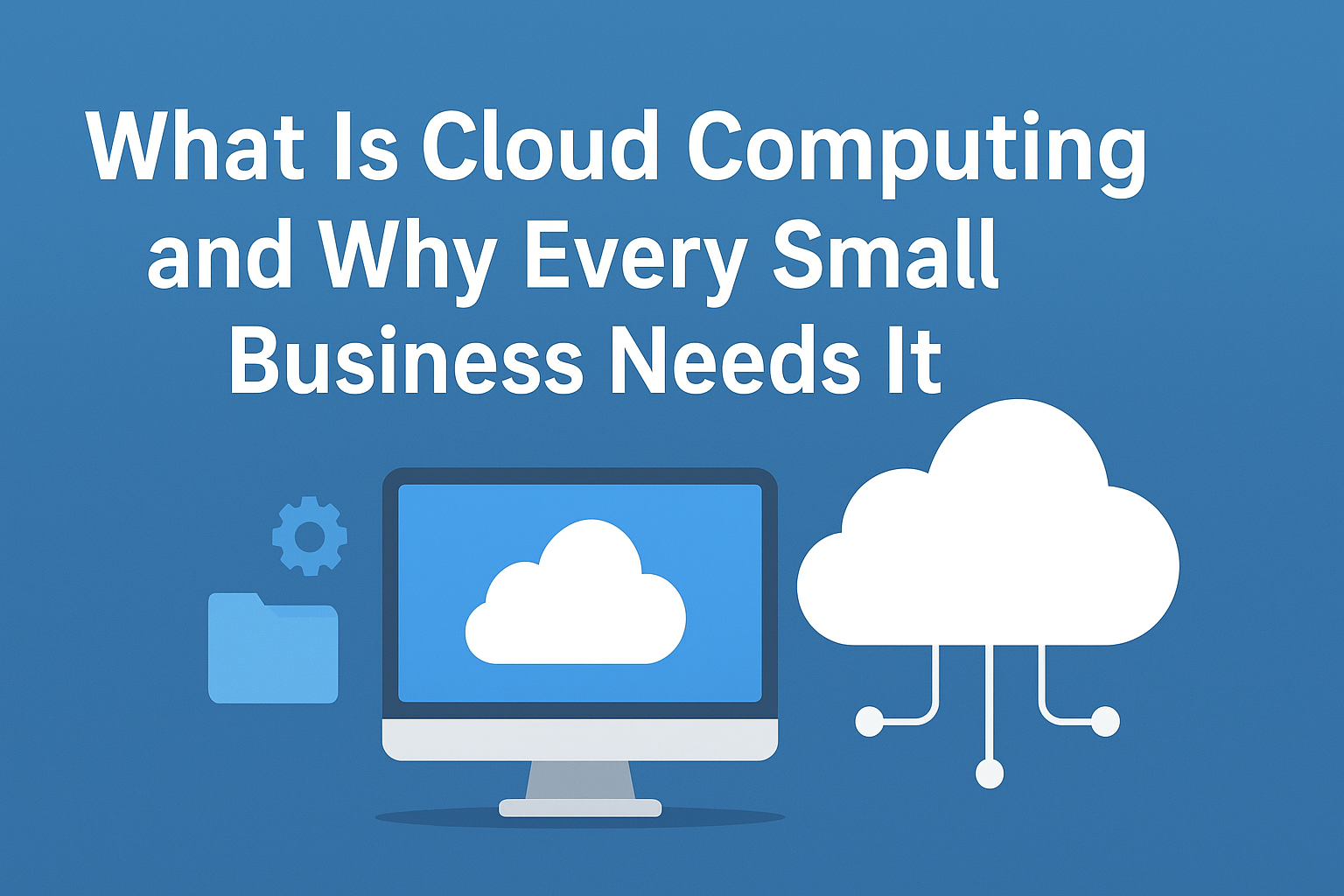What Is Cloud Computing and Why Every Small Business Needs It
In today’s fast-paced digital world, small businesses must embrace technology to stay competitive. One of the most powerful tools available is cloud computing. But what is cloud computing and why every small business needs it is a question that many entrepreneurs are asking today. The truth is, cloud solutions are no longer just for large corporations—they are essential for small businesses that want to grow, cut costs, and improve efficiency.
What Is Cloud Computing?
Cloud computing is the delivery of IT services such as storage, servers, software, and databases over the internet instead of relying on physical hardware. In simple terms, it means you can access your files, applications, and business tools from anywhere with an internet connection.
For small businesses, cloud computing eliminates the need to invest heavily in physical infrastructure. Instead, you can pay for what you use and scale services as your business grows.
Why Every Small Business Needs Cloud Computing
Here’s why cloud computing is a must-have for small businesses:
1. Cost Savings
Traditional IT infrastructure requires expensive servers, maintenance, and software licenses. Cloud solutions allow businesses to avoid large upfront investments and only pay for what they need. This is especially beneficial for startups and small enterprises with limited budgets.
2. Scalability and Flexibility
Small businesses grow at different paces, and cloud computing offers the flexibility to scale resources up or down. Whether you need additional storage during peak seasons or more bandwidth for new applications, the cloud makes it simple and affordable.
3. Remote Work Enablement
In the post-pandemic era, remote work has become a necessity. Cloud services let employees access files, collaborate on projects, and use business applications securely from anywhere. This increases productivity while ensuring business continuity.
4. Enhanced Security
Many small business owners fear that moving to the cloud compromises security. However, leading cloud providers invest heavily in advanced security protocols such as encryption, firewalls, and multi-factor authentication. This ensures your business data is safer in the cloud than on local servers.
5. Business Continuity and Disaster Recovery
Unexpected events like system crashes, cyberattacks, or natural disasters can cripple small businesses. Cloud computing offers automatic backups and disaster recovery plans, ensuring that critical data is always protected and accessible.
Real-World Applications of Cloud Computing for Small Businesses
-
File Storage & Sharing: Platforms like Google Drive and Dropbox simplify file access and sharing.
-
Business Tools: Cloud-based accounting software like QuickBooks and Xero make financial management easier.
-
Marketing Automation: Tools such as HubSpot and Mailchimp help small businesses automate campaigns and reach more customers.
-
E-commerce: Cloud hosting services allow small retailers to scale online stores without worrying about downtime.
The Future of Small Businesses in the Cloud
The future is undoubtedly cloud-driven. As technology evolves, businesses that fail to adopt cloud solutions risk being left behind. Cloud computing empowers small businesses to compete with larger enterprises by offering the same technology at a fraction of the cost.
By adopting cloud solutions, small businesses can improve efficiency, reduce costs, and stay resilient in a competitive market.
Conclusion
So, what is cloud computing and why every small business needs it? Simply put, it’s the key to cost savings, scalability, security, and long-term growth. By moving to the cloud, small businesses can unlock new opportunities and future-proof their operations.
If you’re a small business owner, now is the time to explore cloud solutions that align with your goals and budget. The cloud is not just a technology trend—it’s a business necessity.






